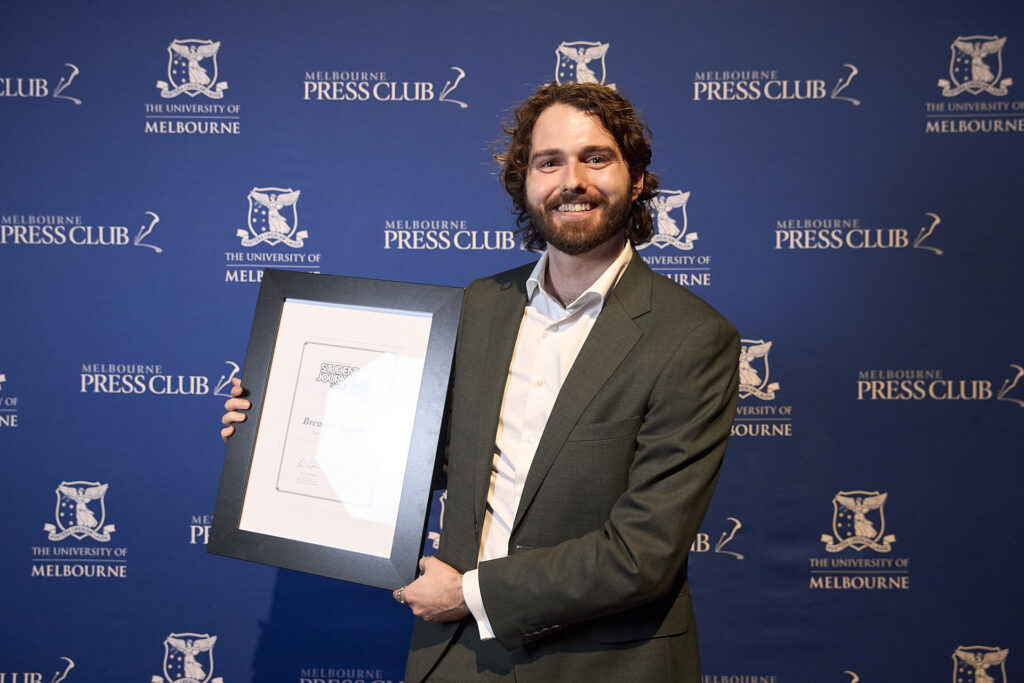A fragmented media landscape characterised by declining levels of trust among audiences can be overcome by innovative and responsible reporting, experts say.
Social media influencers, media personalities and platforms such as Spotify have become sources where people access much of their information about politics and current affairs. The 2025 Australian federal election offered many examples of this trend.
It was reported that several influencers were invited to the Federal Government budget lockup in March. Prime Minister Anthony Albanese and Opposition leader Peter Dutton both made appearances on Mark Bouris’ Straight Talk podcast, as did Federal Treasurer Dr Jim Chalmers and Opposition finance spokesman Angus Taylor. Albanese and Greens leader Adam Bandt have been hosted by Abbie Chatfield on her podcast.
This mirrors the trend in the United States during the 2024 election. Between November 2022 and 2024, 37% of Youtube videos from creators such as Joe Rogan and Logan Paul contained content about voting and elections. Research from the University of Sydney suggests that US President Donald Trump’s appearances on podcasts increased his support by up to 2.6%.
Politicians are trying to meet voters where they are. Australians’ engagement with podcasts is growing year on year. News was the third most popular podcast genre in 2024.
Regulations which govern political advertising in Australia have had to adjust to this diverse range of contributors. In April, the Australian Electoral Commission (AEC) released new guidelines about cross-posting political authorisations after a review into Abbie Chatfield’s podcast episode with the Prime Minister. The AEC reiterated the fact that its powers were confined to regulating the political process, and that it was unable to regulate truth in political advertising.
Australians already don’t trust what they see online, with trust ratings steadily declining. Distrust in news sources has increased from 16% in 2016 to 33% in 2024. This drop aligns with a global trend. The 2025 Edelman Trust Barometer Global Report shows that 67% of people believe that media sources would rather support an ideology than inform the public of important events.

Brendan Kearns is a journalist working at News Corp Australia. Kearns reflected on what was contributing to rising levels of distrust amongst Australian audiences.
“There is misunderstanding amongst the general population about the work that goes into journalism,” he said.
“People aren’t engaging with media in the way that they used to.”
This is reflected in numerous studies. Australians are engaging with fewer sources of news. This has led to concerns that people are increasingly confined to information echo chambers, where they are insulated from viewpoints that challenge their own. This is especially true for podcast audiences. The commercial pressures faced by podcast platforms mean they are unlikely to diversify their users’ listening experiences. Governments are still figuring out how to effectively regulate these services for the benefit of the public.
Despite this challenging environment, journalism can still be impactful. Modern day journalists must use innovative methods to communicate with audiences and break down barriers.
“We need to meet people where they are,” Kearns said..
A range of journalism courses offered at the University of Melbourne, RMIT University, Deakin University, La Trobe University and Swinburne University all feature at least one subject which teaches aspiring journalists to create multimedia stories.
Throughout the election campaign, veteran ABC journalist Leigh Sales presented short videos on Instagram explaining aspects of the election. The Guardian aired a new podcast, Back to Back Barries, with legendary journalist Barrie Cassidy and former Liberal party strategist Tony Barry unpacking the week of campaigning each Saturday morning.
As the media landscape and the skills required of journalists have changed, aspects of journalistic practice have been debated. One example of this is the “view from nowhere” developed by Jay Rosen. This concept acknowledges that a journalist’s sense of important stories can stem from their personal experiences.
However, the fundamental principles which underpin journalism have remained the same. Kearns spoke of the importance of ethics outlined in codes like that of the MEAA to his reporting.
“That’s a responsibility I feel constantly, is making sure that the people I talk to, I’m presenting them fairly,” he said.
Responsible and ethical journalists can mend relationships with audiences by being more transparent with them and showcasing the work that goes into their reporting. Kearns speaks to this more in the following interview.
(Featured image: Photograph from Obi, taken from Unsplash)







